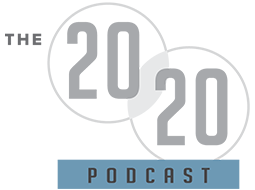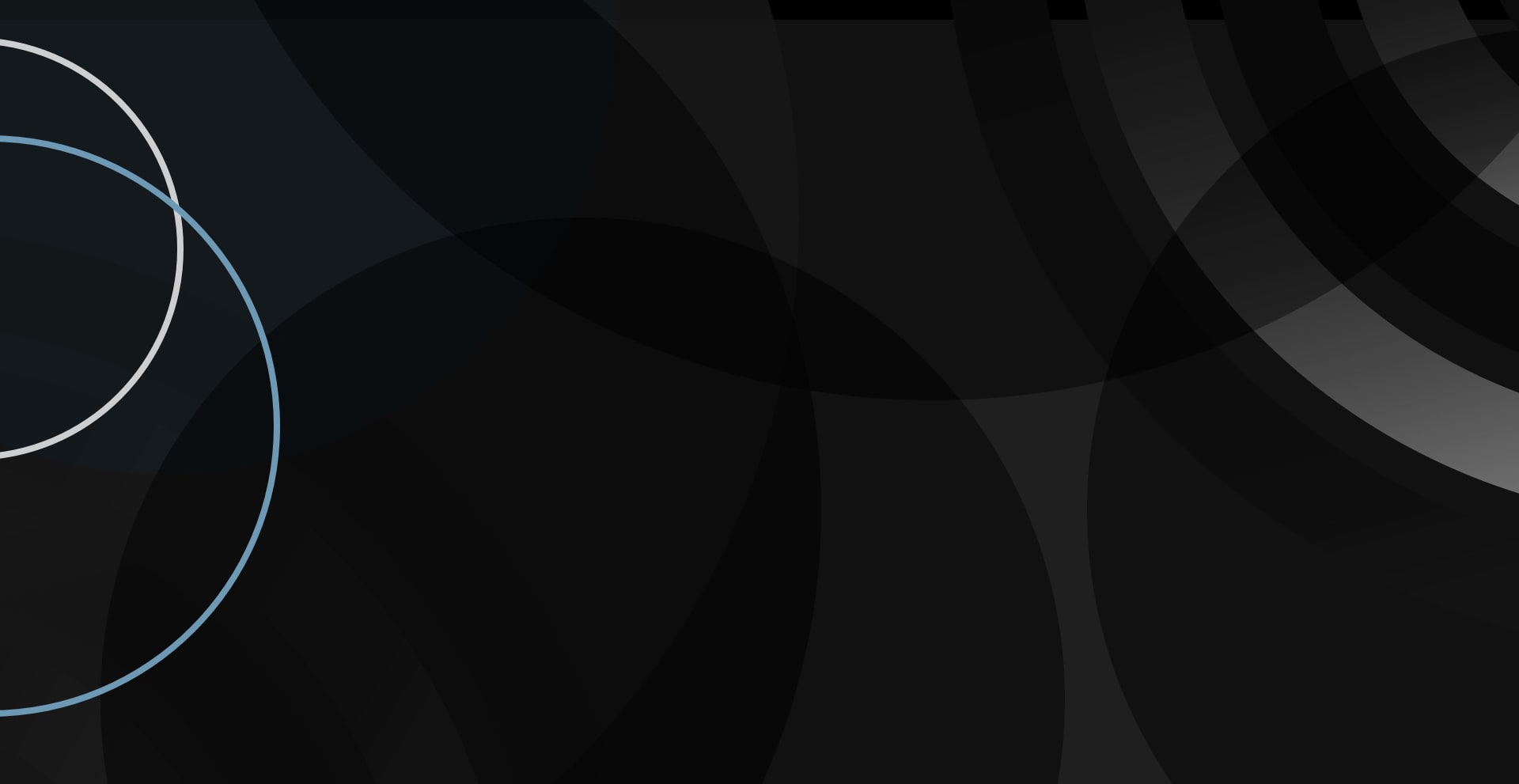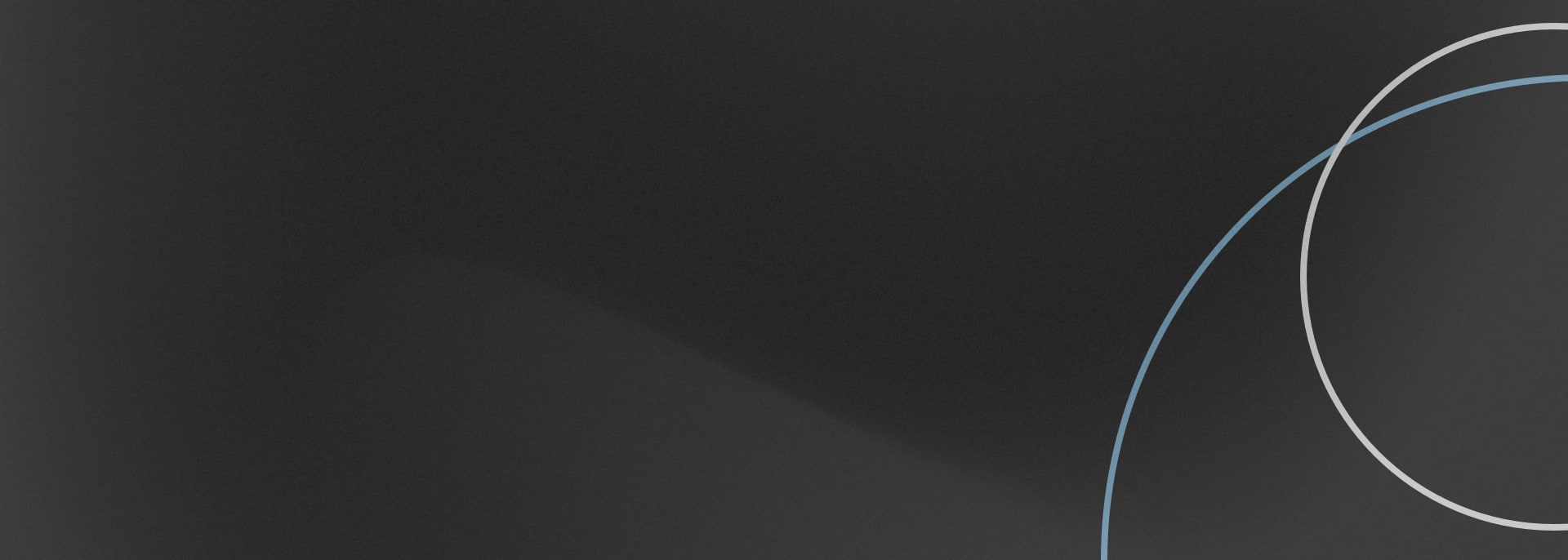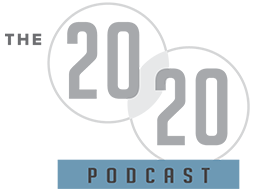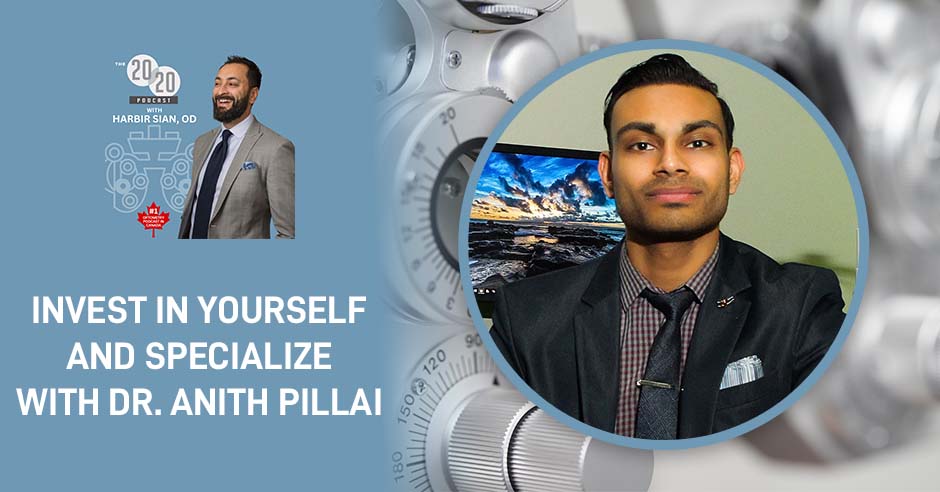
Success begins with investing in yourself and specializing in your craft. In this episode, we have Dr. Anith Pillai, owner of Evolutionary Eye Care, to discuss the importance of investing in oneself and the power of specialization. Dr. Pillai highlights the importance of mentorship, smart work, and strategic planning for achieving professional success through continuous learning and personal development. He also shares how to balance work and life while managing a business and explains the importance of investing in your health for long-term success and happiness. Tune in now and start investing in yourself.
Connect with Anith:
Instagram Handle: @anithp23
Professional Email: [email protected]
—
Watch the episode here
Listen to the podcast here
Invest In Yourself And Specialize – Dr. Anith Pillai
Thank you so much for taking the time to join me here. As always, I’m so grateful you would take the time out of your busy schedule to join me here to learn and grow. As always, quick request right off the top. If you get any value out of this or if you’ve gotten value out of previous episodes, please do share it with a friend. Send a link, take a screenshot, and put it on Instagram or LinkedIn or wherever you are.
Let everybody know that I’m here having this conversation with the amazing Dr. Anith Pillai and we are going to have a fun conversation. If you’re into specialty lenses and myopia management and stuff like that, we’re going to dive into that. Some other fun stuff with Dr. Pillai. Anith, first of all, quick intro from my perspective that I want to give you to give me your perspective. If you don’t know Dr. Pillai, he is the owner of Evolutionary Eye Care down in Houston, Texas. He is also a board member of the AAOMC, which is the American Academy of Orthokeratology and Myopia Control and he’s the Texas leader of the Young ODs of America, YODA, if you don’t know them. Thank you so much, Anith, for joining me here. I appreciate it.
No, my pleasure. Thanks so much for having me.
This is great. I know this is a long time coming. You’re a great guy. Every time I run into you, we have a great conversation. I’m always inspired by your energy and everything that you’re doing. I’m glad to finally have you on the show to share some of your insights. What would you say about yourself? The first question is, what’s your quick intro? If you meet someone new, like at a conference for example, you were at the GSLS. You were at the specialty lens meeting down in Vegas. Let’s say you ran into somebody new there. What’s a couple of lines you would say about yourself?
Yeah, the first thing is the private practice owner. I’m very proud of that and it takes some time to get into that world. A private practice owner in Houston. We actually have three locations in Houston, and our emphasis is mostly specialty care. While we have a little bit of primary care, mostly our business is based on my specialties, which are specialty contacts, keratoconus, Ortho-k, and my partner specialties, which is vision therapy and low vision and pediatric care. Both of us do a lot of ocular surface disease management. Now that we have two new doctors who are joining on board. They’re now getting to the specialties as well. That’s how I would introduce what I do on a day-to-day basis.
It’s good that your practice is entrenched in specialty care. That’s something I’m finding important moving forward for the whole profession of optometry. Primary care is important. Obviously, we need that, but for us to continue to expand and to grow and to be able to serve our patients better, those specialty care services are important. How long ago did you open your practice?
Our first location opened in 2016.
Were you right into specialty K right off the bat?
Me and my partner both graduated in 2012. We’re in the same class. We actually sat right next to each other. Around the fourth year, we had this vision of creating this business model and talked about what we wanted to do. The reason why I think it was successful was because, number one, even at that young age, we had an idea of entering it into with a business mindset where while we’re still friends, we want to make sure that everything is done from a business perspective and no hard feelings and all of that.
Also, he had my vision of not focusing purely on primary care. You have to initially as a cold start, but venturing out where most of our business is into these fields. I got very lucky that he didn’t want to do what I do and I didn’t want to do what he does. He had a passion for vision therapy and low vision as much as I have a passion for orthokeratology scleral lenses and specialty contacts. That worked out well.
We both knew that we loved dry eye and that passion grew as we developed our practice because it is so prevalent. In practicing, you can’t go a day without seeing a dry eye patient. It’s everywhere. That grew naturally and organically because those patients always came in. We had that idea from the onset and we knew that, as it grew, we eventually wanted to do less and less primary care and more and more on the specialty side.
First of all, the partnership thing, that’s great advice or that’s great that you shared that right off the bat, assume that there’s a partnership agreement and you’re like, “This is business, so we know how the business is going to be run.” You set that groundwork early on because otherwise, things can get messy, tricky, and hard to navigate.
As I mentioned, I graduated in 2012, but we started our practice in 2016. We had so many mentors who told us horror stories of opening with a friend and that led us to go down that path. I can’t tell you the amount of money we spent on lawyer fees, a draft of contracts and everything else, but we wanted to do it the right way.
The other thing that helped out in the beginning is, and my partner David Chau, who is a fantastic partner, I owe so much of our success to him and all the hard work he that he does. Even though we went to school together, he wasn’t my best friend and I wasn’t his best friend. I think that helped out a lot. We had our own lives and things and we weren’t always relying on each other’s friendship.
We could come into it saying, “You didn’t do this in the business,” or, “Remember when I helped you when you were fifteen years old?” That helped to a degree. Obviously, when you go into business with someone, you become very close. I talk to him more than my wife now. It’s the nature of what we do. Having that mindset of making sure that friendship aside, we want to make sure that we’re doing this as if I just met you and I can’t trust you if things go wrong.
That’s how we went into the contract negotiations of how everything was set up because everything that usually goes wrong when friends get into business is I can trust him and don’t have the setup to back up when things don’t go wrong. Friendships can be tricky, especially when money is involved, and he was 100% thinking that same way.
It’s interesting that you guys weren’t best friends because that definitely would’ve changed the way you started that partnership. Giving a little bit too much trust or a little too much leeway like, “We don’t need to write that in there because I think it’ll be okay.” That’s actually an interesting perspective. I’ve had some younger ODs and people getting into new partnerships reach out to me because I have a business partner as well.
We’ve known each other for a very long time, so they were reaching out to me like, “What’s good, what’s not, what worked, what didn’t?” Sharing that information, I know there are other people out there who are reading and want to learn from that. That’s good. When you opened, you said you initially had a little more primary care. You got to see whoever you can see. To keep pay the bills and whatever. What type of steps did you take when you were like, “Now I want to dig into specialty care and do less primary care.” Were there specific things that you did or did not do that allowed you to go down that way?
Yeah. I can probably speak a little bit about what my partner did as well. The first thing is what are things that come into a primary care practice that you can venture off into specialty care and dry eye is a big one. I don’t know if you consider dry eye specialty or not, but certainly not pure primary care. Every patient that we came in that had that problem, being very aggressive into saying, “Here’s this issue,” not just sending them off with lubricating drops and, “I’ll see you in a year.”
“This is an issue that I’m seeing. Let’s bring you back for a dry evaluation and see what the underlying causes and what we can do about it because there are so many great things that we have that may be able to treat this problem that isn’t being addressed right now.” That was low hanging fruit, the dry eye practice portion of it.
For Ortho-k, kids are coming in. Mom and dad come in, and the kid is sitting in the chair. “When was the last time the kid had an eye exam?” “He’s wearing glasses. His glasses got worse.” That was easy for me because I already had a passion for myopia control, saying, “Little Johnny’s prescription got worse.” Yes, we can give him a stronger pair of glasses, but when is that going to end? He’s seven years old now. Imagine when he’s now an adult and we’re getting stronger and stronger prescriptions. There’s something we can do to prevent that. That was the second step, which was easy with patients who were already coming in.
Same thing for my partner with vision therapy and something that I learned from him. That’s what’s great about having a partner that does something different. You are constantly learning from each other. Vision therapy and myopia control, which we have learned over the years, are not so distinct. I thought it was when we opened. We’re seeing there a lot of overlapping situations that go on with those two specialties.
That’s what’s great about having a partner that does something different from you. You constantly learn from each other.
We learn a lot from each other. He even mentioned when you see a lot of pediatric patients and if you’re looking for some of those problems of those binocular vision issues, you’re going to find much more than you would think. I remember I gave him a code. I was said like, “Yeah, if I look for it, probably a third of my pediatric patients probably have a binocular vision issue.”
I thought that was aggressive to say that. He came back to me and he said, “You’re probably underestimating it.” That was crazy. It’s his low-hanging fruit because he is already seeing pediatric patients and he was mentioned how I was talking about myopia control. He was talking about how these binocular visions exist. Whether it’s kids coming in diagnosed with possible learning disabilities, that might be a vision-related issue. That helped grow his practice.
The specialty lens one took a little bit longer and I went out to our colleagues, our neighboring optometrists and I would say, “We’re offering this service. If you do it already, fantastic. If you have any questions, let me know because I was already doing it in my prior work experiences. If you’re not doing it, we’d love to help out and handle what you want us to handle and refer the patients back to you.”
That was a lot of grinding, going to our colleagues’ offices, introducing myself, bringing the staff treats and having conversations with them. That took time to build. The biggest thing about that was their trust that I don’t want to steal any patients. Everybody’s worried about it. It was quite the opposite. I went in with the mentality saying, “Those are your patients. If I can help your patients, let me know, but you got to take care of them. I’m not taking care of their glaucoma care. If they need scleral lens, great, I’ll handle that, but they still come back to see you.”
That slowly built up over time and as the community started trusting us more as we did more events and became involved with the local Houston Optometric Society, and things like that, I think they saw me as a presence in the community of someone that they could trust for their patient care. I knew that as I started presenting and lecturing more, I knew what I was talking about. Also, that was all I wanted to do. I wanted to help that particular condition and then have them manage everything else.
That’s helpful, actually, in all of those stages of those different variations of the specialty that you offer. I think the most impactful right there at the end when you’re talking about specialty lenses, the effort that it took to go out and speak to colleagues to convince them. Obviously, you’re an authority in the space. I would feel if I was in your town, I would feel very comfortable.
I have a friend you may know, Dr. Sherman Tung. I always bring his name up here because I think he’s also involved with AAOMC. He’s definitely in the specialty lens myopia control space. For years, I referred all my patients to him. Even if his office is over an hour away from one of my offices, I would refer to him because I was like, “He’s the authority. He is the guy I look up to, a guy I learned from, so I’m going to send everybody there.” I would do the same with you if I lived around your area.
The next thing on this, which is something I’ve been harping on a little bit lately, is when you do that, though, I’m the person who’s sending a patient to you. When I send that patient to you, I’m doing multiple good things. One is I’m making sure that that patient’s getting good care, continuation of care from me to you. I know you’re going to take care of them. They’re going to be happy with that. It’s also strengthening our profession, making sure these inter-referrals that we do is good for the profession.
People learn that there’s a lot more to optometry than spinning the dials. There are people out there doing specialty lenses and other things like that. It’s good for the long-term outcome of the profession if we learn to do that a bit more and get comfortable with that. We have to make sure we can trust each other, which is the other thing that you said is so important.
I think that inter-OD referral is something that’s maybe being underutilized. I agree it’s so important for the future of our profession. If we want to grow together, we got to trust each other too. A funny story, and this is probably not the great business and practice management advice, especially for optical related, but I remember when we opened our second location. We’re building up and not optical heavy based but we have one.
Patients refer us for ortho case, scleral lens of vision therapy. Patients come in and want a high-end pair of glasses or something they don’t see. The first thing we did when we opened our second location was give our staff a lift as doctors that I visited that we know in the area said, “You should go visit them for your pair of glasses.” It’s one thing to refer to me, but it would be nice for myself to refer to them as well. I think it’s important that they see the value of referring to me for this service. Optical and providing that service are very important, too. If they can do a better job at it than me, why not refer to them?
We were talking about specialty care and referring people and inter-OD referrals. We were talking about how you started to build that specialty side of the practice. As you started leaning away from primary care into specialty care, let’s go more specifically into specialty lenses because that’s your thing. As I said, you’re the authority and authority let’s say. There’s lots of other amazing doctors who are in the space, but it’s not something that I’m into. I was telling you before we started, I’m coming from this from a very beginner level this many years into my career. We bought a topographer and done exactly two scleral lens fits and zero Ortho-k fits.
That’s my perspective, but I’m excited to get into it because the two scleral lenses I did were great successes, and there were both people who had no other option than their glasses. In both cases, we had them see better through sclerals than they could see through their glasses. It was a win essentially in every way. I’m super excited. Now let’s talk to someone like Harbir who’s entering or interested in entering. What advice do you have for that person to get started?
One thing I want to start with is that at some point, I also only had two scleral lens patients, and I had zero Ortho-k patients. That’s where I started. I didn’t do a residency. That’s a question I get a lot. How much do you recommend a residency versus not? There are pros and cons to both. I didn’t do one but I have many colleagues that have done a residency and they don’t regret it. You can get a lot of experience that way.
I’ll give you my experience of where I came from coming into practice and in school, I didn’t ever see a scleral lens patient. I never did an Ortho-k patient. I was thrown into the weeds a little bit. My first job there was a practice that had a lot of patients with high astigmatism and keratoconus and were in corneal GPs, etc. I didn’t have any experience with it.
The owner had experience with it and asked me, “Do you want to get into that?” At first, I wasn’t sure but I might as well get my feet wet. As the new doctor, I don’t have the full schedule like he does, so it’s a good learning experience. One thing that helped, and I’ll say this to any doctors that are starting out as an associate and your schedule isn’t full, if you’re seeing two patients a day, what are you going to do the other time? It’s a great opportunity to learn. During that time, I would try to learn as much as I can about specialty lenses. In the beginning, my days were filled with seeing 2 to 3 patients and then webinar after webinar, article after article.
I was so happy to be out of school because we’d been in school for many years and were studying more and more. It doesn’t sound intriguing. As I learned more and more and as I started reading more, I realized I’m not studying for a test anymore. I’m studying because I want that knowledge, the passion. I’m curious. I want to get better and better. If you are interested in it, I highly recommend reaching out to those resources. There’s a ton of free resources nowadays.
There are free webinars on the Scleral Lens Education Society. There might be a small membership fee now on GPLI.info. There’s a ton of great resources. Many great articles, even on review of optometry, cornea and contact lenses. There’s everything is on the web now. You can learn a lot from the internet resources that are available nowadays.
That’s how you get the basics. Knowing the basics of doing scleral lenses, the basics of starting with Ortho-k, how everything works. You do 1 or 2 under your belts and you still have some questions. There is the next level where you get to that intermediate of, “Now I know at least what to start with, but I’m running into some roadblocks. I’m running into some trouble and I don’t see what to do now from the online resources.”
That next big jump was the conferences I attended. That is a big investment in yourself. I highly recommend going into with the one we went that I came from the GSLS. Fantastic specialty contact lens conference. ICSC, which is a scleral lens conference. It is probably one of the best scleral lens conferences in the world. I highly recommend that.
The other great thing is that all the great minds come to that conference to present, do workshops, and share their information. Vision by Design. It is, in my opinion. I’m biased for sure on the board of the AOMC, which hosts the Vision by Design. You can ask any colleague who does Ortho-k myopia control, it is hands down the best conference for Ortho-k myopia control. There’s no other conference like it.
I want to see the passion that the doctors in that community have, not only to share their knowledge, but to share their knowledge even outside the classroom. That was the biggest driving force for me to join AOMC and eventually become a board member. Everybody is so passionate. They want to continuously share their knowledge and they want everybody else to do exactly what they’re doing. It’s electric when you go to that conference. I highly recommend Vision by Design.
Once you start attending these conferences, you’ll learn so much in the lecture halls, especially when starting. I recommend asking questions and sitting next to experienced people and picking their brains. A lot of the learning happens at dinner right after, at the bar, because that’s where the minds come together and anything goes. Ask any type of question.
When all those bright minds are together in one location, you have to take full advantage of that. While I go to them and present at many of them, I don’t include myself in the bright minds. I include myself as an avid and passionate learner who sits back and learns from colleagues who’ve done this for many years. That has helped me progress in specialty lens care.
I always find that there’s the lecture hall or classroom education when I go to conferences. The next step is there’s hallway education and then there’s what I call bar stool education, which is the later in the evening when things loosen up a little bit and there’s a lot of good lessons I’ve learned often, that life lessons.
Let’s talk a little bit about Vision by Design because you get to see that one from the inside a little bit. Let’s put a pin in that for a second because I thought about something else. We’ll come back to Vision by Design in a second. I thought about something else while you’re talking about how passionate people are specifically at Vision by Design, but in general, with Ortho-k.
Over the last few years, I’ve become much more intrigued by Ortho-k because I am leaning into myopia management quite a bit but still haven’t done a single Ortho-k fit. I’ve done basically the other three main things like soft contacts, spectacle lenses, which we have here in Canada, and atropine, which I’ve done a bunch of as well.
For the other three, I’ve done a fair amount, but no Ortho-k yet, simply because I had no experience and I wasn’t sure how to get it set up. One thing I’ve experienced is there seems to be a bit of a divide. It’s a bit of a polarizing thing. There are people who absolutely are passionate and love Ortho-k and think it is amazing and then there’s a lot of people who are skeptical about it. I find vision therapy similar too, but I wonder why, do you know why orth people would be skeptical about Ortho-k? Do you agree that this exists, that there are people who are skeptical?
I do see it in the ophthalmology community to a degree. Some older studies showed incidents of corneal ulcers and things like that. Very antiquated. You got to remember those were designs that were decades where Ortho-k was first developing and were figuring it all out prior to me and you practicing. A lot of ophthalmologists I’ve encountered in the past are holding on to that old data, which is surprising because they wouldn’t hold on to 50-year-old data for anything else. That may be one. The other thing is, and this is the question I get from patients, which is always tough to answer, not why I should do this or why I should do with you. It’s, “How come I never heard of this before?” That’s the number one question I get. That’s a tough one.
I think it’s because I don’t know how it was for you in optometry school. I didn’t have a lot of Ortho-k education in optometry school. There was some, but I did a lot of macular degeneration, a lot of ocular disease. I wasn’t exposed to Ortho-k as much as those things. Even myself coming out who does a lot of that now, it wasn’t trained into me. Where do you finally get that experience?
You have to finally get that experience if you knew you wanted to go into that specialty. That can be tough if you’re coming into a primary care practice. Now you have to devote time, especially not the owner. How do I implement this whole new specialty and not take away from my bread and butter? That’s a lot to ask. It’s the simple fact of changing habits, I think.
I do believe it has gotten so much better over the last few years. From when I graduated to now, it’s exponentially better. We would never even talk about Ortho-k like this on a platform like yours. That that wouldn’t make a topic of discussion. To have that and have an amazing conference that’s dedicated specifically to that, which is as big as it is now, I think we’re headed in the right direction.
Yes, there are still some hurdles that we have to jump, but we’re getting better and better. You can see that with the amount of industry support that’s coming into the field. You see the bigger companies are now investing into myopia control. Think about all the products that are now available that didn’t exist years ago. We’re definitely heading in the right direction, but it’s going to be steps.

I’m coming in from a very beginner-novice perspective here, but I’ve seen that dichotomy of people who are into it are into it. Everybody else is skeptical about whether it even works or is it harmful in the corneal ulcer thing? I think a lot of it is the education and the awareness around the whole thing. For me, the more I see people like you that I trust and like are telling me, “Harbir, this is something you got to get into,” I wouldn’t argue with you or Sherman, for example. I would get into it.
The more people like me who are on the fence start getting into it, the more skeptical people will also realize its benefits. Hopefully, I can become a proponent of it like you are. I think you’re right. The fact that there are conferences dedicated to this stuff means that a lot of people are actually interested in it. Let’s go back to the conference thing. Vision by Design. Tell me, what does it look like from your perspective as a board member of the AAOMC to put on an event like that?
Yeah, so it’s a big board and I don’t want to say that I have the influence of actually all the logistics and there are people much more skilled than me that put on booking the hotels, the venues, etc. I am involved in talking about how we can have more and more doctors attend, whether it’s speaking and lecturing or what topics people are interested in.
What it goes into is now at this point of the level that the Vision by Design conferences is how can we now expand to more and more doctors that are not fully experienced of doing Ortho-k on a daily basis. As I said, the world’s leaders of Ortho-k myopia control come to this conference. They speak, so everybody that’s involved in that is there. That’s great, but we need to make sure we’re sharing that knowledge now to a much wider audience.
That’s where, specifically for myself, I’m trying to expand that doctor base of who’s all hearing about it. I’ve walked into doctors who haven’t heard about AOMC or Vision by Design, which is fascinating because if they ask me a question about, ‘I want to get more into Ortho-k. I want to get more into myopia control. What are conferences, meetings or organizations I should join?” I say, “There’s the conference to attend that’s dedicated to this. There’s the organization to join that’s dedicated to this.” Making sure that more people are aware of that.
The other thing I want to mention about Vision by Design is I mentioned how passionate everybody is and it’s something that you can’t avoid. I guarantee everybody that comes there, they walk away without saying, “I can’t wait to do this tomorrow.” The other big thing is how much every single practitioner there wants to help each other, especially for somebody who’s getting started. That’s the biggest thing.
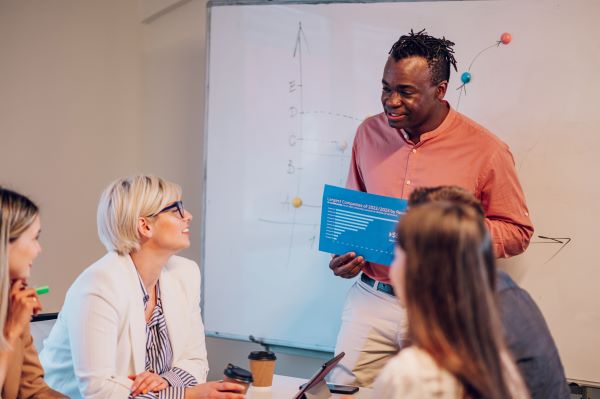
When I lecture with another doctor or I’m at the bar with another doctor who’s already experienced doing a lot of it, we’ll chitchat about little clinical things and there’s a lot of wisdom to gain from them, but there’s nothing that gives us more joy when a doctor comes in and says, “This is my first time here. I’m just starting out. What advice do you have for me?” That is what makes us light up because we cannot wait to have that conversation. That’s awesome. If anybody sees myself or any other doctor at Vision by Design, if you come with that question, and I hope you do, be prepared. We are going to sit you down. We are going to have in-depth conversations because that is what crows us.
When I mention that issue, when patients ask me, “How come I’ve never heard of this before,” the reason we that happens and the solution is having more of our colleagues do this. If my colleague down the street two minutes from me is starting to Ortho-k, that is a blessing for me. That’s not going to hurt my business. It’s not going to hurt me because now more people have heard about it.
That’s going to help all of us. If everybody around me started doing my Ortho-k, scleral lenses, I don’t view it as competition. I view it as our profession growing. I think that’s the other biggest thing that I want to see coming into our next Vision by Design, which, if you don’t mind me plugging, will be in my home state of Dallas, Texas.
It’s going to be happening September 2nd through the 6th. Lots of days of great content. They’ll have tracks for beginners. They’ll have tracks for the advanced myopia control practitioner. As I said, it will be in my home state, Dallas, Texas. If you want to learn more about it, the website is AAOMC.org. You’ll find information about AOMC and Vision by Design. They have a lot of great resources not only for doctors but also if you’re thinking of giving information to patients to learn more, they have a patient-based content site as well.
That is helpful because I’m sitting here thinking, “What kind of content or literature can I put together that I could show my patients or put on my website?” That’s very helpful. I’m going to be one of those people who’s walking in the bar and like, “All right, I’m new here.” Let’s see how many people come running over, buy me a drink or something.
You’re going to be overwhelmed, for sure.
I can’t have you on the show and not talk about, talk about your threads. You’re always dressed to the nines style. You know me and we both like dressing up, but the last couple of times I’ve seen you, it’s been top-notch. Tell me, do you get some of your stuff custom-made? I love the way you dress.
The suits are custom-made. I got the logo on it. This is not the best time to talk about it. I’m coming from work in my scrubs, but I appreciate it.
Go look on his Instagram. You’ll see pictures.
Thank you. Every time we have this conversation, I’m looking for compliments. It was funny. I was at GSLS and hanging out with my colleagues. Same thing as you, they’re complimenting me, and I had a colleague come up to me talking about, “You’re always dressed so great, you and Harbir. You guys. I was like, “Yeah, he’s on his game.” You’re well renowned to conferences you’re not even attending. That’s what how your game is on.
That’s a huge compliment. Thank you very much. Wonderful. I was at a lot of conferences. It was a blur. I lost track of where I was and what time zone I was in. I’m trying to take it easy, but it’s a blessing. A lot of stuff’s coming up, and I hope to find myself at some good places. We’ll see how it goes. Anith, there’s a couple of new things I’m trying with the show and you’re one of the first I’m going to do these with. Bear with me. I’m glad it’s you because I know you can handle change of pace and different questions and stuff like that. First thing is we’re going to do a quick little rapid-fire. Try and make the answers short like a few words or one sentence deal.
I’m not good but I’ll do my best.
What in your life gives you energy? What is it that you’re around somebody or doing something that gives you energy?
Two things. One of them more recently and the other one been for a while. Meditating in the morning and working out. Exercise. I want to give a thing about exercise. I was told this when I first started my practice. Make sure you have something that gives you time for yourself and doesn’t hurt your body because there are so many ways you can when you first start a business. Exercise is a great one.
Make sure you have something that gives you time for yourself that doesn’t hurt your body.
Let’s go to the flip of that. What drains your energy?
It might drain my energy, but it’s always fun. Probably drinking.
If you’re around good people, it balances up. What keeps you up at night? Do you sleep well?
I do sleep pretty well. What does, and this still happens to this day, I wake up in the middle of the night and think about an idea or something I should have done for my business of, “I need to go calculate that. I need to check this metric. I need to incorporate that.” It woke me up in the middle of the night. There are so many blessings of being a business owner but the downside is you never punch out.
What would you do if money was no object now? What would you do for work? During the day, what would you like to do to keep yourself busy?
I’ve actually thought about that a lot. I think for sure it would involve my specialties. You and I both love speaking so I don’t think that would go away. Doing it nationally on a more one-on-one basis where if a practitioner was thinking about incorporating a specialty into the practice or how to make it even businessly viable, going in, doing workshops, into the practice, talking to doctors one-on-one of strategies that have worked for me that could hopefully work for them.
You’d be helping more people if you had the freedom to do it. That’s great. Alright, the last one of these rapid-fires is what task or activity brings you into your flow state that when you’re doing it, you lose track of time?
As far as getting ready to do something? I don’t think about anything else.
When you’re in the middle of doing a thing and you lose track of time, like you’re so into it, you love it so much. Is there something that you do, whether it’s daily or once in a while, you get to play a sport or play you music or something in your work, whatever it might be?
I used to love playing basketball, but that goes away as you get older. Hopefully, I can get back into it. There are two things. Exercise and working out. I work out pretty much every day, so that helps me to get rid of stress, for sure. The stressful things go away. It does help me think a little bit more, but the stress goes away.
The other thing is when I’m creating like a lecture or a presentation. That takes a while because I do everything to avoid it when I start. There’s nothing worse than standing blank screen. It takes me forever to get started. I’ll do anything to avoid it like, “I didn’t do the dishes or I got to go take out the trash.” Once I’m 3 to 4 slides in, the juices flow, and then I won’t stop.
It’s so funny. I do the same. Legit. I’m like, “Do you need me to fold the laundry today?” “Harbir, shut up and do the presentation.” I’m the same way.
The things you do for the household to avoid doing the presentation.
We’re done with the rapid-fire. There’s another new section to the show that I’ve added and it’s called You’re Welcome. It’s taken from the movie Moana, which I understand you’ve seen. There’s a song that Dwayne Johnson’s character, Maui, sings. He’s saying, “You’re welcome,” because he’s this god who’s brought everything to the Earth and he’s saying you’re welcome for all the things, the sun and the stars and all of this. I know it’s a little obnoxious, but it’s fun. It’s tongue in cheek. I would love for you to share one deep piece of advice. What is something profound that you think would change the person who’s reading this, change their life a little bit for the better and that we can thank you for?
Two main things, if you don’t mind. First one, it’s always better to learn from other people’s mistakes than your own. If you can find a fantastic mentor to learn from who wants to see you grow, it’ll be worth its weight in gold. Number two, do everything you can to invest into yourself. Invest in your health and your well-being. Growing better as a leader, growing better as a person. Listen to audiobooks to make sure that you gain a new skill. Invest in yourself is how you can guarantee that you’ll become a better person tomorrow.
Investing in yourself is how you can guarantee that you’ll become a better person tomorrow.
To that, I say thank you and you say?
You’re welcome.
I’m hoping this is going to catch on. You’re welcome. Thank you. That’s great. Going back to the regularly scheduled programming here, there are always two questions I have asked at the end of every episode that I’m going to ask you in a second. Before we do that, plug yourself a little more. Where can people find you? Where should they go? I know you gave some links already, but if they want to connect with you directly.
Yeah, you can find me on Instagram. My handle is @anithp23. If you follow me, I post a lot of cases. Most of my feed is actually Ortho-k cases, scleral lenses, dry eye cases. There’s a lot of clinical content. I’m always happy to answer questions on there. There are a few things where if I’m seeing Harbir at a conference, I’ll post pictures of us as well. Most of what I post is actually clinical cases and mostly specialty care.
On Facebook, it’s my name is Anith Pillai, and if you want even put in my email, it’s [email protected]. I always love getting questions and comments from colleagues. That’s what I enjoy. Most of it is now on Instagram, so I’m happy to do that. Hit me up on any platform. My name is Anith Pillai on Facebook and on LinkedIn. Our website is EvolutionEyeCare.com if you want to find out more about what we do.
The last two questions. Number one, if we could hop in a time machine and go back to a time in your life when you were struggling, you’re welcome to share that moment, if you’d like. More importantly, what advice would you give to yourself at that time?
There are many things that I went through. Probably the most recent was opening a business. I say 2016, that’s when we opened the doors, but the process started in 2015. 2016 and 2017 were rough times because it was literally every six months; my partner and I were looking at each other. It’s like, “How many more months do we have until we go bankrupt?” That’s how the conversation went. I would say we were positive more so than confident that we could probably make it.
The advice that I would do is stress doesn’t help. Planning does. Being stressed out doesn’t solve any problems. What are you going to do about it? Think of solutions, plan out and think of a strategy to help. I think I learned that much later in my life. There’s no point in having that stress. Internally, it hurts you as a human being and secondly, it does nothing to solve your problems.

I think that advice could apply to a lot of scenarios. Planning versus stress. The last question is, of everything you’ve accomplished to this point in your career and life, how much of it is due to hard work, and how much is due to luck?
I think a lot of it’s to hard work, for sure. More than hard work, I think I want to pivot. The beginning stages of hard work and that took time. I think where you want to eventually pivot and another piece of advice I would give is work smarter than harder. To that point of sitting on that blank slate and not wanting to deal with that and instead of doing the mindless task, working hard is a little bit easier than working smart, to be honest. It’s hard to think of strategies to implement that can be successful rather than, “Let me track this, let me track that. Let me do the grind work.” Thinking smarter is probably the biggest thing to grow exponentially rather than working harder. In my opinion, thinking smarter is a harder thing to do.
That’s clever. I like that. That’s actually a very good point. We do get caught up in doing the work versus finding ways to elevate. That’s great advice. Thank you very much. I appreciate you coming on.
You’re welcome again.
There are a lot of times throughout the episode that people could say you’re welcome, but I focus in on that one. Thanks. It’s great to have you on and maybe have you back on another time. I’ll try to come out to Dallas for Vision by Design and maybe report back from there.
That’d be fantastic. I would love to see you there. I would love to see all your readers there as well. Thank you so much for having me. It was a true honor. This is when you made it when you’re on this show. That’s when you made it big time.
Thanks. I appreciate that. I don’t know if that’s true but thank you very much. Thank you to everybody who’s reading Canada’s number one optometry show. I’ll see you in the next episode.
Thank you.
Important Links
- Evolutionary Eye Care
- AAOMC
- GPLI.info
- Vision by Design
- Instagram – Dr. Anith Pillai
- [email protected]
- LinkedIn – Dr. Anith Pillai
About Dr. Anith Pillai
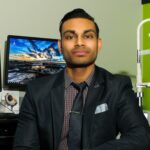 Dr. Pillai received his undergraduate degree from the University of Texas at Austin and his Doctor of Optometry from the University Of Houston College Of Optometry. He is the co-owner of Evolutionary Eye Care, where he has a clinical emphasis in anterior segment disease including Keratoconus, Specialty Contact Lenses, Orthokeratology/Myopia Control, and Ocular Surface Disease. He has written articles and lectured on the topics of Scleral Lenses, Ocular Surface Disease, Orthokeratology, and Practice management.
Dr. Pillai received his undergraduate degree from the University of Texas at Austin and his Doctor of Optometry from the University Of Houston College Of Optometry. He is the co-owner of Evolutionary Eye Care, where he has a clinical emphasis in anterior segment disease including Keratoconus, Specialty Contact Lenses, Orthokeratology/Myopia Control, and Ocular Surface Disease. He has written articles and lectured on the topics of Scleral Lenses, Ocular Surface Disease, Orthokeratology, and Practice management.
He is a Fellow of the International Academy of Orthokeratology and Myopia control and of the Scleral Lens Education Society. He is clinical adjunct professor at the University Of Houston College Of Optometry. He is an active member of the American Optometric Association and the Texas Optometric Association. He is on the board and past President of the Harris County Optometric Society, Board member of the American Academy of Orthokeratology and Myopia Control, Board member of Young ODConnect, and is the Texas leader of the Young ODs of America.
